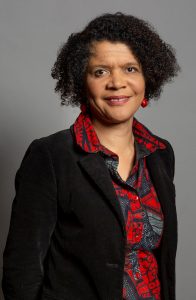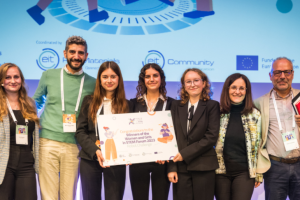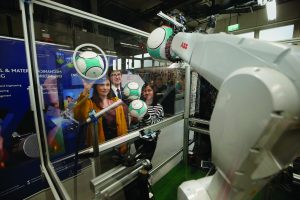Chi Onwurah was elected as the MP for Newcastle upon Tyne Central in 2010 and is a board member of the AFBE (Association for Black and Ethnic Minority Engineers). She is the shadow minister for Digital, Science and Technology.
Onwurah believes that science and politics are the twin engines of progress, although for women that progress is slow in STEM areas (science, technology, engineering and mathematics). “There has only been a 1% increase in women STEM graduates and women in the STEM workforce since 2015. There has only been a 3% increase in the number of female engineering students since my time at Imperial,” she points out. [Onwurah graduated in 1987].
“Today, while women now make up over half of GPs and solicitors, the proportion of female engineering students has barely increased.
I often say that Parliament is the most diverse environment I’ve ever worked in, and that is often met with shock until they learn that I was an engineer.” she adds.
Born in Wallsend, North Tyneside, she attended secondary school in Kenton, Northumbria. “There were no scientists on our council estate. There were few even on telly and none of them were women,” she said. “But the teachers at my school encouraged me in science when they knew that I was passionate about it. Great teaching from dedicated teachers can make anything possible,” she recalls.
“I was one of those annoying children who knew what they want to be at an early age. I always wanted to be a scientist. The idea of a woman scientist back then meant that some kids, and even a few adults, laughed,” she says.
STEM progress
Recalling her early career as an engineer, Onwurah says she was often “the only black person in the room, the only woman in the room, the only working class person in the room, the only Northerner in the room, the only socialist in the room and the only Newcastle United fan in the room”.
“What those who are not part of a minority often fail to understand is how tiring it can be just to be the only one of you. I would go and speak at a conference of 2,000 engineers and they would all remember me because I was the only black person, but I wouldn’t remember them. That is both an advantage and a disadvantage – people thought I was rude for not recognising them. But equally I was memorable.
“But what swirled around me was not the reality of my experience or views but their own stereotypes. Assumptions that… often were not explicit: Was English my first language? Was I a qualified engineer?”
Onwurah is a member of the All-Party Parliamentary Group for Diversity and Inclusion in STEM, which launched a report into equity in STEM education in June this year. “It found that there are still too many barriers to young people in traditionally under‑represented groups to become the scientists, engineers and technicians of the future,” says Onwurah.
The report called on the government to take a more joined up approach to tackle the causes of inequity in STEM education. The report shows that whatever the socio‑economic background, from the age of three onwards, children are currently suffering from the levels of inequity in STEM education,” she reports.
In addition to good teachers who identify and encourage STEM talent in younger students, higher education is still an area of concern. “While the gap between girls and boys taking sciences at GCSE has been eliminated, and girls actually perform better on average, it persists at A-level, where only a fifth of physics students are female, for example.
“We need to build bridges between schools and industry and educate girls from an early age about the opportunities available within STEM. Furthermore, it is vital that girls and women have access to digital skills throughout their lives.
The pandemic is going to change the labour market and it is an opportunity for women and girls to retrain and reskill to take the high skilled, high paid jobs of the future.
“Diversity is not an optional add-on, it is an economic imperative,” she says. “That was true throughout my two-decade career as a professional telecommunications engineer and it’s even truer now that technology has become such an everyday part of everyone’s lives, with STEM jobs projected to be created at twice the rate of other jobs over the next five years.”
 Electronics Weekly Electronics Design & Components Tech News
Electronics Weekly Electronics Design & Components Tech News




